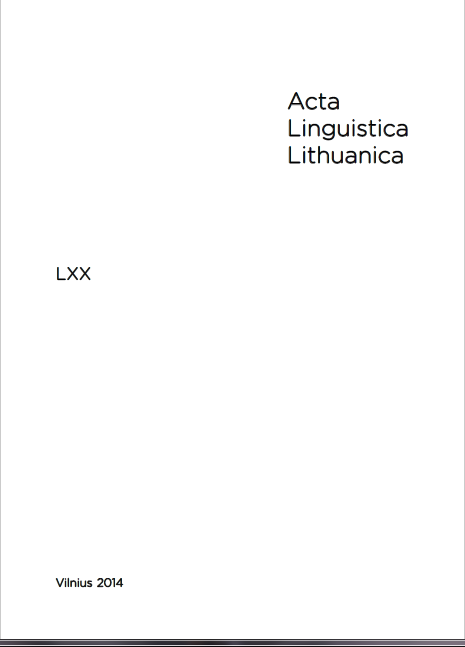Daiktavardžio vardininkas ir įnagininkas finitiniuose askriptyviniuose būti sakiniuose
Noun in the Nominative and Instrumental Case in Finite and Ascriptive Sentences of būti (to be)
Author(s): Loreta Vaičiulytė-SemėnienėSubject(s): Theoretical Linguistics, Morphology, Syntax, Baltic Languages
Published by: Lietuvių Kalbos Institutas
Keywords: modality; noun predicative; morphosyntactic marking;
Summary/Abstract: The article deals with the possible connection between the marking of noun predicatives and the modality expressed by moods. The material analyzed in the article consists of ascriptive finite sentences of the copula būti (to be) collected from the Corpus of the Contemporary Lithuanian Language (CC LL) where a positive predicate is expressed in the forms of different moods. The opinion is followed that in respect of the evaluative and irreal modality, morphosyntactic marking is gradual and we can speak in preliminary terms about the relative tendency to use the instrumental of the noun used as the predicative in respect of the scales epistemic > deontic (indicative > imperative mood) and real > irreal (indicative > subjunctive mood).
Journal: Acta Linguistica Lithuanica
- Issue Year: 2014
- Issue No: 70
- Page Range: 9-24
- Page Count: 16
- Language: Lithuanian

